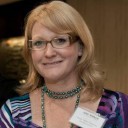I recently attended the Growing the Impact Economy Summit, held 22-23 June in the stunning Presidio Park in San Francisco, California. Hosted by the Presidio Trust, the backdrop to the summit was a living example of a successful hybrid of public, private and non-profit enterprise, all working together for the benefit of society. The blurring of lines between the sectors was literally all around us.
Non-profits are seeking to increase earned revenue and financial sustainability. For-profit enterprises are increasingly seeking a positive social impact as well as profit. The public sector is relying more and more on collaborative efforts from both sectors that lead to increased funding and community buy-in.
I heard this emerging sector referred to as For-Benefit, Fourth Sector, Impact Economy, Social Sector and Plural Sector all within the first hour of the Summit. It is easy to be overwhelmed by what this opportunity is, and what it means for society and philanthropy. I think to bring meaningful success that truly is for the benefit of society, we must define it and avoid further monopolization of social impact work.
Many have suggested that we are doing a disservice to society by defining another sector. And that it is time to stop differentiating between profit, non-profit and public. An entrepreneur’s last question should be ‘is this a for-profit or non-profit enterprise?’ recommended Benetech’s Jim Fruchterman at the Summit. The focus should be on what you are trying to achieve. Alexandre Mars of Epic Foundation recently wrote that it is time to change the narrative: ‘In our magazines and top 40 CEO lists, we should never differentiate between those who have started private sector businesses versus those with a public interest. Let’s start changing the narrative now.’
But what does this blurring of lines mean in terms of societal change, power dynamics and decision making? Is there a danger in blurring these lines? The public and non-profit sectors are by definition driven by the value of benefiting all members of society, especially the underprivileged or underserved. The private sector is by definition driven by monetary value and earning profit for the owners of the enterprise.
I agree that for-profit corporations can and should be inclusive of public interest, but I think they have to do some serious soul-searching first. The framework around the fourth sector has to ensure that decisions and priorities in public and philanthropic endeavours are not further monopolized by profit and status.
With money comes power and influence. This blurring of lines is coming at a critical time when people already feel that corporate dollars control the government, public spending is inadequate and ineffective, and philanthropic decision making must be further democratized to be effective.
We need to do more than listen to community and grassroots leaders. We need to ensure they have a seat at the decision-making table. I fear these seats will become more and more elusive to grassroots leaders if all the excitement and focus is placed on the investment dollars.
Institutions and networks such as the Rockefeller Foundation, African Diaspora Network, One World Children’s Fund, the Disability Rights Fund, Wikimedia Foundation and the International Human Rights Funders Group could lend a strong voice to this evolving ‘fourth sector’ and help shape a democratic, diverse framework that ensures that we listen and learn from the people who have dedicated their lives to benefiting society.
At the Summit, we were asked by Rob Evans of Imaginal Labs, ‘What will you bring to the fourth sector? Wealth, Wisdom, Worldly connections or Work?’ We owe it to the public and non-profit sectors to ensure that, as we blur these lines, it is not just those who bring wealth who are writing the narrative and making the decisions.
Steph Allie Heckman is executive director of One World Children’s Fund.





Comments (0)